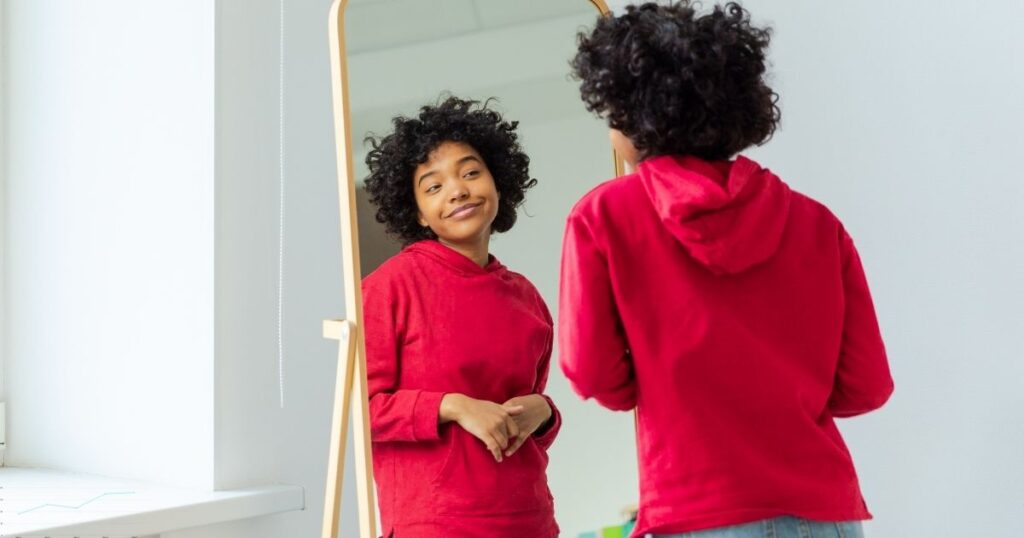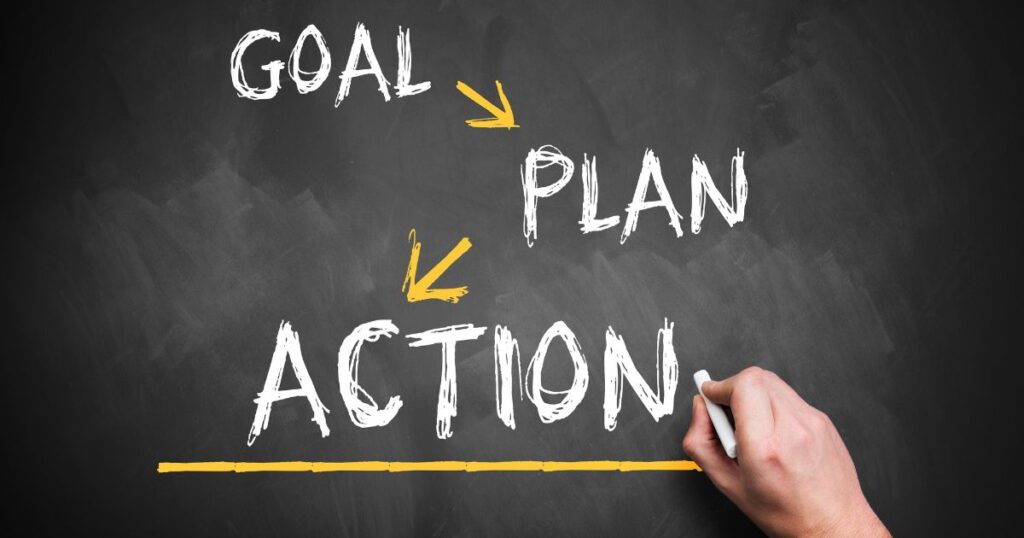Confidence isn’t something you’re born with. It’s built, step by step, decision by decision, action by action. Being confident about yourself means trusting in your abilities, feeling comfortable in your own skin, and believing that you can handle whatever comes your way.
What Confidence Really Means
Confidence is not pretending to be fearless. It is the quiet trust you place in yourself—your skills, your judgment, and your ability to learn.
Some people think confidence is about being loud or aggressive, but real confidence is calm. It is the assurance that even if you don’t know everything today, you can figure things out tomorrow.
Why Confidence Is Important
Confidence changes how people see you—and how you see yourself. A confident person is more likely to take opportunities, speak up in meetings, and lead teams.
In Filipino workplaces, confidence is often the difference between being napapansin (noticed) and being overlooked. Without confidence, even the most talented professionals may stay quiet and miss chances. With confidence, you earn trust, respect, and influence.
Now that we know what confidence is and why it matters, let’s talk about ten simple ways you can build confidence every day.
Embrace Your Fears
We all have fears. They whisper doubts and create barriers. The first step to confidence is to face these fears head-on. Name them. Understand them.
For example, many people fear public speaking. But what exactly about public speaking scares you? Is it the fear of forgetting your lines? The fear of judgment?
By naming your fears, you take the first step in conquering them. You move from being a passive victim to an active participant in your own story.
I remember when I first started speaking. I was terrified. Growing up as an informal settler, we often had nothing to eat. At school, I was bullied because of my background. I felt insecure about my English, my pronunciation, my grammar—everything. But naming these fears helped me understand them.
And understanding them was the first step in overcoming them.
Set Clear Goals
Confidence thrives on clarity. Set clear, specific goals for yourself. What do you want to achieve? Break these goals down into manageable steps.
\Instead of saying, “I want to be confident,” say, “I want to speak confidently in meetings within three months.” This clarity gives you a roadmap. It makes the journey less daunting and more achievable.
I set small goals for myself. I started by practicing my speech in front of a mirror. Then, I spoke in front of a friend. Gradually, I increased my audience size. Each step I took, no matter how small, built my confidence.
Take Small Steps
Big goals can be overwhelming. The trick is to break them into small, actionable steps. Each small step you take builds momentum and confidence.
If your goal is to become a better public speaker, start by practicing in front of a mirror. 1Then, speak in front of a friend. Gradually increase the audience size. Each successful step, no matter how small, reinforces your belief in your abilities.
Every small victory made a big difference. I remember the first time I spoke in front of a small group without feeling nervous. It was a small step, but it was monumental for me.
Learn and Improve
Confidence comes from competence. The more you know, the more you can do. Dedicate time to learning and improving. If you’re preparing for a presentation, research your topic thoroughly.
Practice your delivery. Seek feedback and make adjustments. This continuous learning loop builds your skills and, in turn, your confidence.
I wasn’t confident in my English at first, but I dedicated time to learning and improving. I practiced my speech, sought feedback, and made adjustments.
This constant learning and improving helped build my confidence.
Celebrate Small Wins
Don’t wait for the big successes to celebrate. Recognize and celebrate small wins along the way. Did you speak up in a meeting for the first time? Celebrate it. Did you complete a challenging task? Give yourself credit.
These small celebrations reinforce positive behavior and keep you motivated. They remind you that you’re making progress, step by step.
When I joined Toastmasters, every speech I delivered was a small win. Each evaluation I received was a step forward. I learned to celebrate these small victories, and they kept me motivated to keep going.
Embrace Failure as a Learning Tool
Fear of failure is a major confidence killer. But here’s the thing: failure is a part of growth. It’s a powerful teacher. When you fail, don’t see it as the end. Analyze what went wrong, learn from it, and try again.
Each failure is a stepping stone to success. It’s a chance to improve and come back stronger.
I faced many failures, but I learned to see them as opportunities to grow. Each failure taught me something new and made me stronger.
Surround Yourself with Positivity
The people you surround yourself with have a significant impact on your confidence. Surround yourself with positive, supportive individuals who believe in you and your goals. Distance yourself from negativity and naysayers.
Positive reinforcement and encouragement from others can boost your self-belief and help you stay focused on your goals.
Having a supportive community made all the difference for me. Surrounding myself with positive, encouraging people helped boost my confidence.
Practice Self-Care
Taking care of your physical and mental well-being is crucial for building confidence. Get enough sleep, eat a balanced diet, exercise regularly, and practice mindfulness.
When you feel good physically and mentally, you’re more likely to feel confident. Self-care is not selfish; it’s a necessary foundation for a confident, fulfilled life.
Practicing self-care helped me stay focused and energized. It’s a crucial part of building confidence.
Visualize Success
Visualization is a powerful tool. Take a few minutes each day to close your eyes and visualize yourself succeeding. See yourself confidently handling different situations. Feel the emotions associated with success—joy, pride, and accomplishment.
This mental rehearsal prepares your mind and body for real-life success, boosting your confidence.
Visualization helped me prepare for my speeches. Seeing myself succeed gave me the confidence to perform well.
Be of Service to Others
When you focus on helping others, you shift the spotlight from your fears to their needs. This shift can diminish your anxieties and boost your confidence.
Whether it’s mentoring a colleague, volunteering, or simply offering support, acts of service can make you feel more capable and confident. Helping others reinforces your belief in your own abilities and adds meaning to your actions.
I found that helping others boosted my confidence. When my goal wasn’t just about me, but also about serving others, I felt more motivated and confident.
Key Takeaways in 30 Seconds
- Confidence is calm trust in yourself—not arrogance or pretending.
- It matters because confidence opens doors to opportunities, respect, and leadership.
- Anyone can build confidence—introvert or extrovert—through daily small actions.
- Failures don’t erase confidence; they strengthen it when you learn and try again.
- Confidence grows like a muscle: practice makes it stronger every day.
Frequently Asked Questions About Confidence
1. Is confidence natural or learned?
Some people seem naturally confident, but confidence is mostly learned. It grows from experience, small wins, and practicing new skills. Think of it like a muscle—the more you use it, the stronger it becomes.
2. Can introverts be confident?
Yes. Confidence is not about being the loudest person in the room. Even quiet, reflective people can show confidence through clarity, calm presence, and steady action.
3. How do I stay confident when I fail?
Failure is part of learning. Instead of thinking “I’m not good enough,” ask, “What can I learn from this?” Each mistake can become proof that you are growing. Confidence comes from trying again.
4. Is confidence the same as arrogance?
No. Arrogance is pretending you know everything. Confidence is trusting yourself while staying open to learning. True confidence makes you humble, not boastful.
5. How long does it take to build confidence?
It depends, but you can start seeing changes quickly if you practice daily. Every small action—speaking up in a meeting, volunteering for a task, or learning a new skill—adds up. Confidence builds one step at a time.
Conclusion
Confidence is a journey, not a destination. It’s about taking consistent steps, embracing challenges, and celebrating progress along the way.
By facing your fears, setting clear goals, taking small steps, and continuously learning and improving, you can build a solid foundation of self-assurance.
Remember to celebrate your small wins, embrace failure as a learning tool, and surround yourself with positivity. Practice self-care, visualize success, and be of service to others.
Confidence is within your reach. Start today, take action, and watch your self-belief grow.
You have the potential to achieve great things—believe in yourself and let your confidence shine.
Read: How to Be Confident
- I no longer practice in front of a mirror. I use my camera instead. ↩︎




